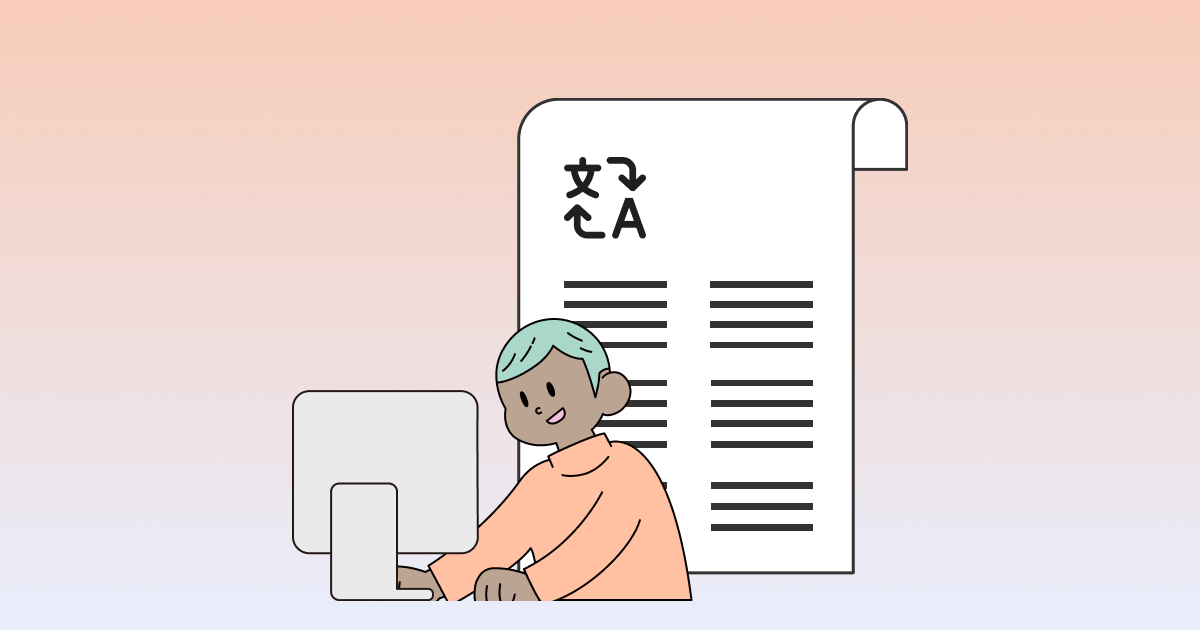'퇴근'을 영어로 쓸 때는 leave work, clock out, get off, call it a day, go home과 같은 표현을 사용할 수 있습니다. Leave work은 ‘퇴근’을 영어로 쓸 때 많이 사용하는 표현입니다. Clock out은 ‘퇴근’을 영어로 표현하는 관용어입니다. Get off와 call it a day, go home은 모두 일상 대화에서 사용하는 비격식적인 영어 표현입니다.

Leave work (퇴근)
Leave work은 ‘퇴근’을 영어로 쓸 때 많이 사용하는 표현입니다. 다만, 사직할 때도 동일한 표현을 사용할 수 있기 때문에 문맥에 유의해야 합니다.
예시 문장
- I usually leave work at 6 PM. (나는 보통 오후 6시에 퇴근한다.)
- She asked her boss if she could leave work early today. (그녀는 오늘 일찍 퇴근해도 되는지 상사에게 물었다.)
- After finishing the report, he left work feeling relieved. (보고서를 마친 후 그는 안도감을 느끼며 퇴근했다.)
- It's so quiet when everyone has left work. (모두 퇴근하고 나면 너무 조용하다.)
- I left work late because of the meeting. (회의 때문에 늦게 퇴근했다.)
- You can leave work once you've completed your tasks. (업무를 마치면 퇴근해도 된다.)
- He left work without saying goodbye. (그는 인사도 하지 않고 퇴근했다.)
- The storm started just after I left work. (내가 퇴근한 직후 폭풍이 시작됐다.)
- We were allowed to leave work early on Friday. (금요일에 우리는 일찍 퇴근할 수 있었다.)
- I always look forward to leaving work at the end of the day. (나는 항상 하루를 마치고 퇴근하는 것을 고대한다.)
Clock out (퇴근)
Clock out은 ‘퇴근’을 영어로 표현하는 관용어입니다. 출퇴근을 기록하는 기계에 시간을 기록하면서 퇴근한다는 의미를 가지고 있습니다.
예시 문장
- She clocked out at exactly 5 PM. (그녀는 정확히 오후 5시에 퇴근했다.)
- Employees are not allowed to clock out early without permission. (직원들은 허락 없이 일찍 퇴근할 수 없다.)
- He clocked out and went straight to the gym. (그는 퇴근하고 바로 체육관으로 갔다.)
- I hate it when the system doesn't record when I clock out. (퇴근했을 때 시스템이 기록하지 않는 게 싫다.)
- You can't clock out until your supervisor approves it. (상사가 승인하기 전에는 퇴근할 수 없다.)
- I always feel relieved when I clock out at the end of the day. (하루를 마치고 퇴근하면 항상 안도감을 느낀다.)
- He clocked out late because of overtime. (그는 초과근무 때문에 늦게 퇴근했다.)
- We all clocked out together and went to a team dinner. (우리는 모두 함께 퇴근하고 회식을 하러 갔다.)
- I usually clock out at the same time every day. (나는 보통 매일 같은 시간에 퇴근한다.)
- Can we clock out early if we finish all our work? (모든 업무를 마치면 일찍 퇴근해도 될까요?)
Get off (퇴근)
Get off 또한 ‘퇴근’을 영어로 쓸 때 많이 사용하는 비격식적인 표현입니다. ‘퇴근’ 외에도 ‘떠나다’, ‘내리다’ 등 다양한 의미를 가지고 있습니다.
예시 문장
- I usually get off work around 6 PM. (나는 보통 오후 6시쯤 퇴근한다.)
- What time do you get off today? (너 오늘 몇 시에 퇴근해?)
- She got off work early to pick up her kids. (그녀는 아이들을 데리러 가기 위해 일찍 퇴근했다.)
- I can't wait to get off work and relax at home. (나는 퇴근해서 집에서 쉬는 것이 기다려진다.)
- He gets off work later than I do. (그는 나보다 늦게 퇴근한다.)
- They got off work together and headed to the bar. (그들은 함께 퇴근해서 바로 바에 갔다.)
- Do you want to grab dinner after you get off? (퇴근 후에 저녁 먹으러 갈래?)
- She always feels exhausted when she gets off work. (그녀는 퇴근할 때 항상 피곤함을 느낀다.)
- The bus schedule aligns perfectly with the time I get off. (버스 시간표가 내가 퇴근하는 시간과 딱 맞는다.)
- He called me as soon as he got off work. (그는 퇴근하자마자 나에게 전화했다.)
Call it a day (퇴근)
Call it a day는 오늘의 근무를 종료하는, 즉 ‘퇴근’을 의미하는 일상적인 영어 표현입니다. 직장 동료나 친한 관계에서 많이 사용합니다. 일 뿐만 아니라 어떤 작업을 하다가 중단할 때 흔히 하는 말입니다.
예시 문장
- I was so happy when we called it a day an hour early. (우리가 한 시간 일찍 퇴근했을 때 너무 기뻤다.)
- After the long meeting, we finally called it a day. (긴 회의 후에 우리는 드디어 퇴근했다.)
- He decided to call it a day around 5 PM. (그는 오후 5시쯤 퇴근하기로 결정했다.)
- I think we’ve done enough for today. Let’s call it a day. (오늘은 충분히 했다고 생각해. 퇴근하자.)
- She called it a day after completing her presentation. (그녀는 발표를 마치고 퇴근했다.)
- When it started raining heavily, we called it a day and left. (비가 심하게 내리기 시작하자 우리는 퇴근하고 떠났다.)
- The team called it a day after finishing the final draft. (팀은 최종 초안을 완성한 후 퇴근했다.)
- I’m so tired. Can we call it a day now? (너무 피곤해. 이제 퇴근해도 될까?)
- He always tries to call it a day before 6 PM. (그는 항상 오후 6시 전에 퇴근하려고 한다.)
- We decided to call it a day earlier than usual. (우리는 평소보다 일찍 퇴근하기로 결정했다.)
Go home (퇴근)
Go home은 집에 간다는 의미로, ‘퇴근’을 의미하기도 합니다.
예시 문장
- After the meeting, everyone quickly went home. (회의 후에 모두 빠르게 퇴근했다.)
- He asked if he could go home early. (그는 일찍 퇴근해도 되는지 물었다.)
- We went home late because of the extra work. (추가 업무 때문에 늦게 퇴근했다.)
- Don't forget to turn off the lights before you go home. (퇴근 전에 불 끄는 것을 잊지 마.)
- She looked so happy to go home after the long shift. (그녀는 긴 근무 후에 퇴근해서 매우 행복해 보였다.)
- The boss let us go home an hour early. (상사가 우리를 한 시간 일찍 퇴근시켜 주었다.)
- I need to finish this report before I can go home. (이 보고서를 마치기 전에는 퇴근할 수 없다.)
- I can't wait to finish this task and go home. (이 일을 마치고 빨리 퇴근하고 싶다.)
- He stayed late to finish the report but finally went home. (그는 보고서를 끝내기 위해 늦게까지 있었지만 결국 퇴근했다.)
- We decided to go home after realizing the problem couldn’t be fixed today. (문제가 오늘 해결되지 않을 거라는 것을 알고 퇴근하기로 했다.)
마치며...
영어로 쓸 때 또는 읽을 때 어려움이 있다면 엔그램 영어 번역기를 사용해보세요. 11가지 문체 선택이 가능하여 문맥에 가장 적합한 번역을 제공합니다.

어떤 표현이 적절한 지 헷갈린다면 AI 영어 문법 검사기 엔그램을 사용해보세요. AI가 문법 오류와 어색한 표현을 자연스럽게 고쳐줍니다.

항상 쓰던 단어만 써서 영문이 단조롭다면 엔그램 패러프레이즈를 사용해보세요. AI가 새로운 어휘와 문장 구조를 추천해줘 영어 수준을 한단계 높여드립니다.

참고자료:

























